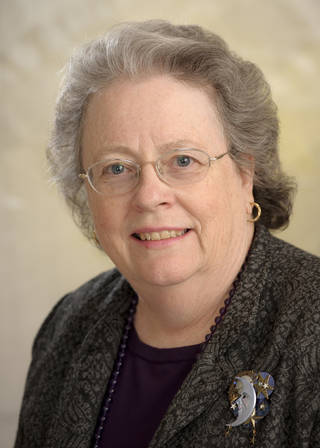Where are the Future Rocket Scientists?
Breaking space news, the latest updates on rocket launches, skywatching events and more!
You are now subscribed
Your newsletter sign-up was successful
Want to add more newsletters?

Delivered daily
Daily Newsletter
Breaking space news, the latest updates on rocket launches, skywatching events and more!

Once a month
Watch This Space
Sign up to our monthly entertainment newsletter to keep up with all our coverage of the latest sci-fi and space movies, tv shows, games and books.

Once a week
Night Sky This Week
Discover this week's must-see night sky events, moon phases, and stunning astrophotos. Sign up for our skywatching newsletter and explore the universe with us!

Twice a month
Strange New Words
Space.com's Sci-Fi Reader's Club. Read a sci-fi short story every month and join a virtual community of fellow science fiction fans!
Last week, rocket scientists, politicians, engineers and educators came together in Los Angeles to explore current and future business opportunities in space at the "Transforming Space 2006" conference. Leaders from Congress, NASA, the U.S. Air Force, universities and major aerospace businesses discussed the current and future prospects for both private and public space programs.
Panels ranged from scientific exploration via NASA Missions to GPS driven consumer services. The final panel focused on space tourism, the ultimate goal of several US and international entrepreneurs. Imagine the experience of a lifetime: a weekend in orbit at a space hotel, playing in microgravity, gazing at Earth, and sharing the astronaut experience. All it takes is innovation, imagination, and a workforce of great rocket scientists.
Throughout the meeting, many speakers talked about the need to educate the future workforce for careers in science, technology, engineering and mathematics (STEM). The President's vision of going back to the Moon and on to Mars requires that an ever-increasing number of Americans choose STEM careers, and do the hard work to achieve college degrees in STEM subjects. Likewise, the 2005 "Rising Above the Gathering Storm: Energizing and Employing America for a Brighter Future" and resulting American Competitiveness Initiative both call for action aimed at producing better educated, technologically savvy workforce in order to assure US economic leadership and security. Yet, several speakers noted that the number of American students completing STEM majors in college is decreasing.
Why? If there were an easy answer, there might be a simple solution.
There's good evidence that children make career choices early in their lives. They are influenced by family expectations, educational experiences, current events, and, increasingly, by the media. Many of the conference attendees made their career choices in the early days of the space age when Sputnik was launched, when people first walked on the Moon, and when spacecraft began to explore other planets in our solar system. Star Trek spawned a fair number of rocket scientists as well. Today, applications to forensic science programs are way up nationally, reflecting the popularity of television's CSI dramas.
A recent longitudinal study explored the impact of student career expectations on college majors. "Plan Early for Careers in Science" by Robert H Tai, Christine Qi Liu, Adam Maltese, Xitoa Fan (Science, May 2006) began with a cadre of 8th grade students in 1988 and followed them through until they graduated from college in 2000. They found that students who expected to pursue a career in science were more likely to achieve a BA or BS (with a STEM major) than their fellow students who aspired to non-STEM careers. Students with non-STEM career aspirations were also less likely to graduate.
The authors also found a good correlation between 8th grade mathematics skills and achievement of college degrees in physical sciences. The authors concluded, "life experiences before eighth grade and in elementary school may have an important impact on future career plans. Although our current analysis does not provide proof of an uninterrupted causal chain of influence, our study does suggest that to attract students into the sciences and engineering, we should pay close attention to children's early exposure to science at the middle and even younger grades. Encouragement of interest and exposure to the sciences should not be ignored in favor of an emphasis on standardized test preparation." With the pressure from No Child Left Behind testing in reading, writing and mathematics, science, art, music, and even physical education have been reduced or eliminated in many elementary schools.
Breaking space news, the latest updates on rocket launches, skywatching events and more!
I believe this is not a wise decision. All students deserve a quality education where they learn to read and write. But, if we are to produce the STEM workforce that will support our technological society, including the space workforce, young students need a balanced education that will motivate them to explore, to perform, to design, to create, to collaborate.
Science, technology, engineering and mathematics need to be embedded in our elementary classrooms in order to expose and motivate all of America's diverse students toward STEM careers. We can't wait until high school or college to fix the problem.
Ultimately, this requires both better education of teachers and better salaries to retain our teachers in the classroom, topics for future columns.

Edna DeVore is a science and astronomy educator and the former Director of Education and Public Outreach for the SETI Institute. She earned an undergraduate degree from the University of Pacific followed by a master's degree in instructional technology from San Jose State and a master's in astronomy from the University of Arizona. In 1992, Edna joined the SETI Institute, where she wrote features on space exploration, astrobiology and more, some of which appeared on Space.com. She was among the first principal investigators to propose projects to NASA's Office of Space Science and receive funding for educational programs. Edna went on to work on education and public outreach for NASA's Kepler space telescope and SOFIA flying telescope missions. Edna received numerous awards during her tenure at SETI, including NASA Honor Awards for her work on Kepler and SOFIA, and Aerospace Awareness Award for Women in Aerospace in 2005. Edna retired in 2013.
